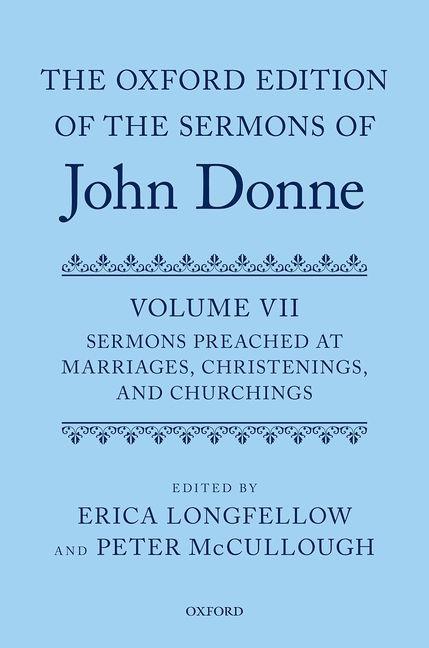Description
Longfellow and McCullough establish that these sermons were preached across almost the whole of Donne's preaching career, from among his earliest (ca. 1615-16) to 1627, four years before his death. In each case an authoritative text has been established by freshly collating multiple copies of the seventeenth-century print editions, as well as multiple manuscript copies which predate the print witnesses. For the first time, these sermons appear with full critical apparatus. The Introduction provides the first dedicated account of the place of sermons in the social, liturgical, and theological contexts of these occasions in post-Reformation England. A headnote to each sermon describes its textual state and supplies local historical, social, and intellectual context, and suggestions for further reading. Extensive commentaries document Donne's use of sources (both acknowledged and unacknowledged), translate passages in foreign languages, and gloss important and unfamiliar words. Although largely neglected by previous scholarship, these sermons emerge here as unique (the only known sermons for churchings), challenging (for views on women and marriage more conservative than many of Donne's contemporaries'), and as evidence of Donne's Calvinist sacramental theology and his anti-Catholicism. They are also fine examples of Donne's skill in crafting emotionally compelling sermons suited to the unique demands of both occasion and auditory.
Product Details
- May 27, 2025 Pub Date:
- 0199562113 ISBN-10:
- 9780199562114 ISBN-13:
- English Language




